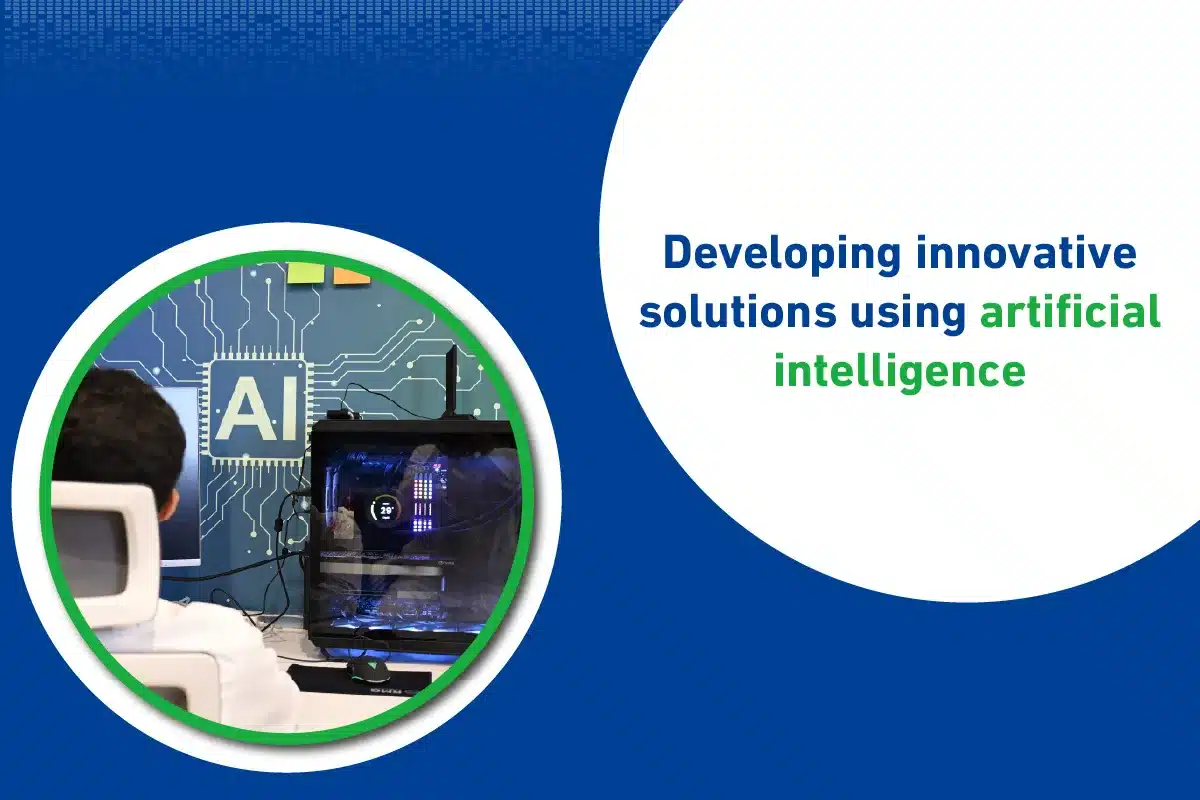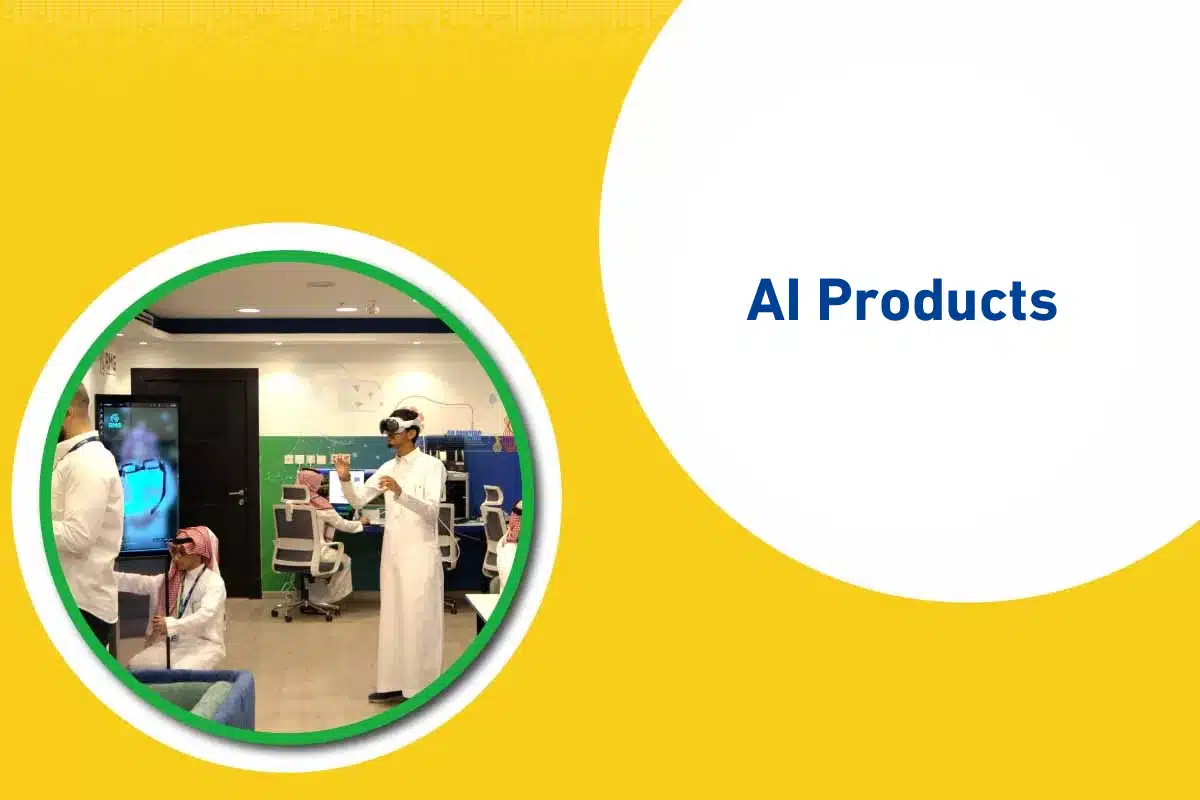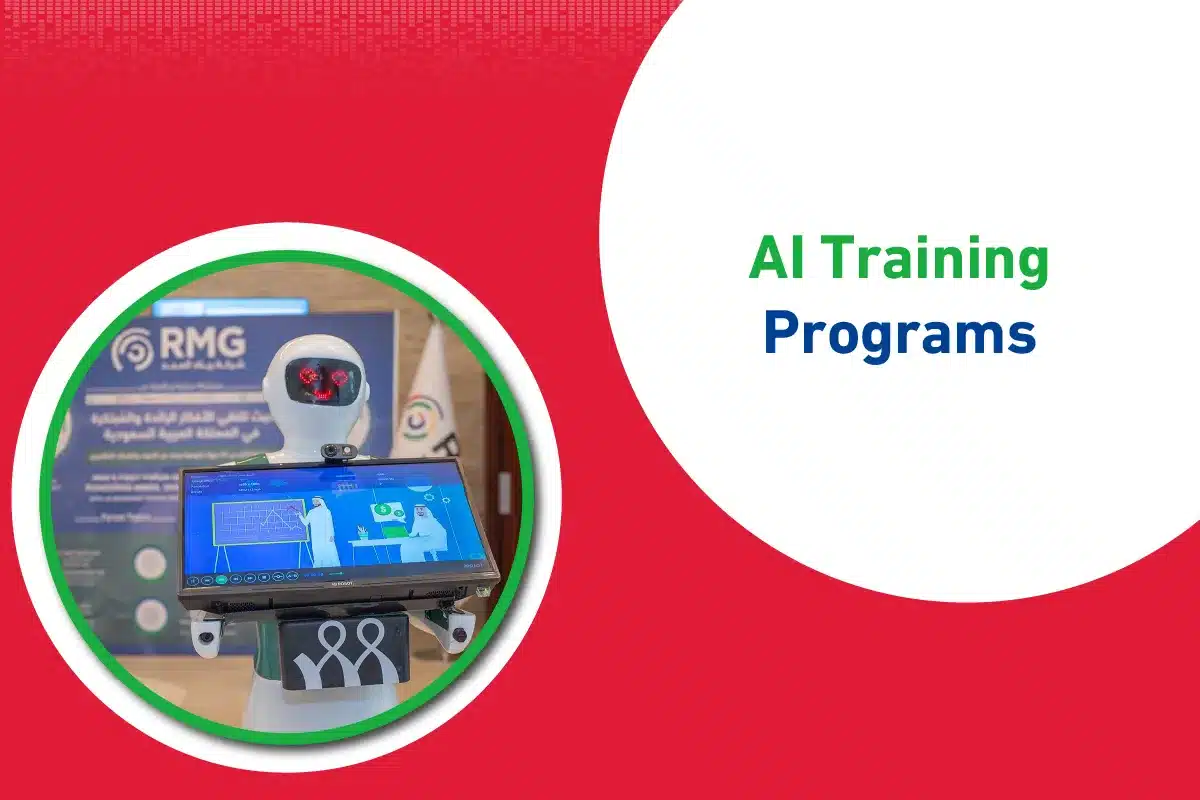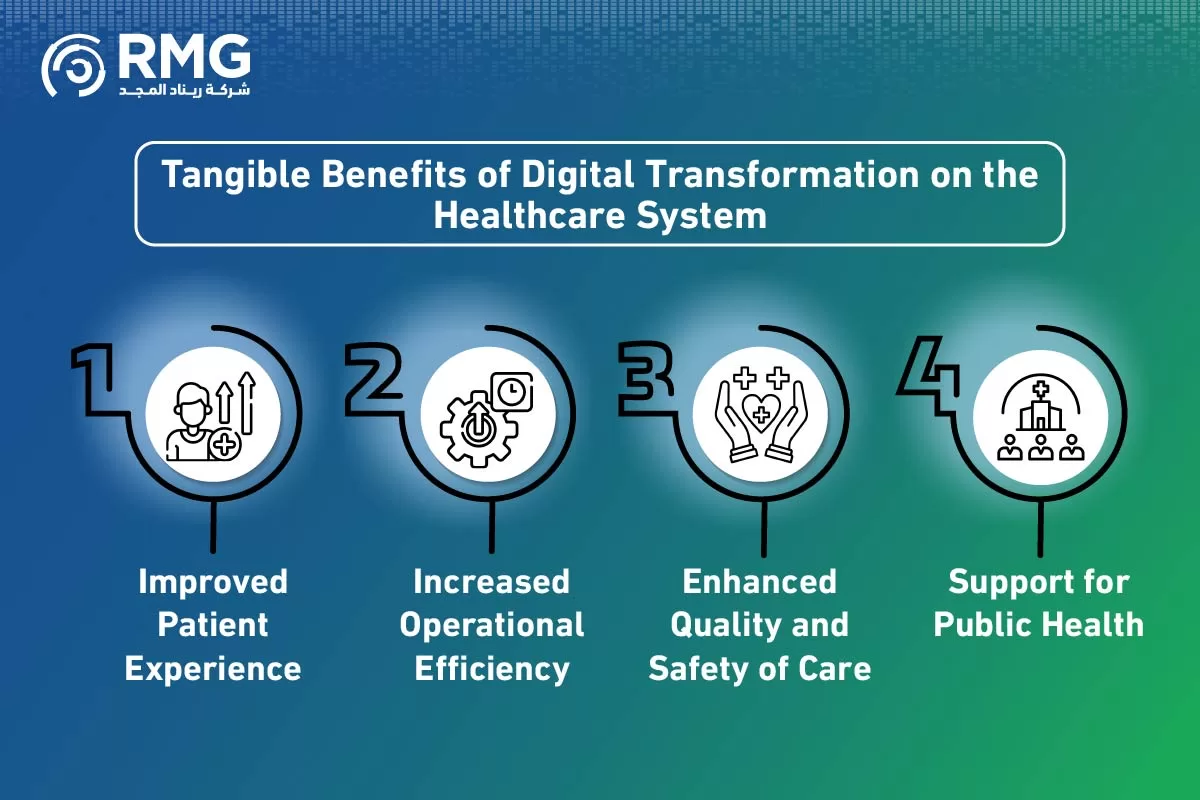Blog Body
Discover how digital transformation in Saudi healthcare is reshaping the patient experience and enhancing the efficiency of the health system. This comprehensive article reviews key initiatives, emerging technologies, and the role of strategic partners in achieving Saudi Vision 2030 goals.
The healthcare sector in the Kingdom of Saudi Arabia is undergoing an unprecedented qualitative leap, driven by an ambitious national strategy that places people at the core of its priorities. Digital transformation in Saudi healthcare is no longer just a technological option; it has become a fundamental pillar for achieving the objectives of Saudi Vision 2030, which aims to build a vibrant society, a thriving economy, and an ambitious nation. This digital revolution seeks to restructure the entire healthcare system by adopting the latest technologies to enhance service quality, improve operational efficiency, and facilitate access to integrated and innovative healthcare for all members of society.
The substantial investment by the Kingdom’s government in this vital sector reflects a deep understanding that the health of citizens and residents is the cornerstone of sustainable development. From this perspective, the transformation journey began, empowering hospitals, health centers, and regulatory bodies to use data and digital solutions to make more accurate decisions, provide proactive personalized care, and create a seamless and interconnected health experience for beneficiaries.
Strategic Pillars Supporting Digital Transformation in the Saudi Healthcare Sector
Digital transformation in Saudi healthcare is not based on individual initiatives or disparate technologies but on a comprehensive strategic system led by the Ministry of Health in cooperation with all relevant public and private entities. The most prominent of these pillars include:
- Alignment with Saudi Vision 2030: The Health Sector Transformation Program is one of the Vision’s key executive programs, aiming to restructure the sector into a comprehensive, effective, and integrated health system based on the principle of Value-Based Healthcare and ensuring prevention of health risks.
- Developing Digital Infrastructure: The Kingdom has worked to establish an advanced digital infrastructure capable of accommodating and securing the vast amount of health data. This includes high-speed communication networks, national cloud data centers, and interoperability platforms that ensure smooth and secure information exchange among various service providers.
- Investing in Human Capital: The Kingdom recognizes that the success of digital transformation primarily depends on qualified personnel. Therefore, intensive training and qualification programs have been launched for healthcare professionals to enhance their digital skills and enable them to use new tools and systems efficiently.
- Supportive Legislative and Regulatory Framework: Policies and legislation have been developed and updated to keep pace with the requirements of the digital age, with a particular focus on data governance, ensuring patient information privacy, and setting strict cybersecurity standards to protect the health system from increasing threats.
Key Digital Health Initiatives and Applications in the Kingdom
National strategies have been translated into a set of tangible initiatives and applications that have made a real difference in the patient and provider experience. Digital transformation in Saudi healthcare is now a reality for millions through innovative platforms, most notably:
- “Sehhaty” Application: The unified portal for health services that allows users to book appointments in primary care centers, access remote medical consultations, view medical reports and electronic prescriptions, check vaccination records, and access other vital services that put individual health in their hands.
- Unified Health Record (SHR): One of the largest national projects aiming to create a unified digital health record for every individual in the Kingdom. This record allows authorized healthcare providers instant access to a patient’s complete medical history, reducing duplicated tests, preventing medical errors, and supporting informed treatment decisions.
- “Mawid” Service: A centralized system that enables beneficiaries to easily book appointments in hospitals and health centers affiliated with the Ministry of Health, contributing to better patient flow management and significantly reducing waiting times.
- “Wasfaty” Electronic Prescription Service: A platform that connects health facilities with community pharmacies, where medical prescriptions are sent electronically, ensuring accurate dispensing of medications and saving patients the hassle of carrying paper prescriptions.
Emerging Technologies and Their Role in Enhancing the Future of Healthcare
Digital transformation in Saudi healthcare goes beyond merely automating traditional procedures; it extends to adopting emerging technologies capable of revolutionizing diagnosis, treatment, and the management of the entire health system.
Today, Artificial Intelligence (AI) is used to analyze medical images (such as X-rays and MRIs) with accuracy that sometimes surpasses the human eye, aiding in the early detection of diseases like cancer. Big data analytics models also contribute to predicting epidemic outbreaks, efficiently allocating medical resources, and developing personalized treatment plans for each patient based on their genetic data and lifestyle.
Internet-connected medical devices, such as blood glucose monitors and wearable heart rate trackers, have become an integral part of modern healthcare. These devices allow doctors to monitor patients remotely and continuously, receiving immediate alerts in emergencies, thereby enhancing the concept of proactive and preventive care, especially for those with chronic diseases.
Telemedicine services have proven their utmost importance, especially during the COVID-19 pandemic, and continue to play a pivotal role in expanding access to healthcare, particularly in remote areas. These services allow patients to communicate with doctors and specialists via video, receiving consultations and initial diagnoses without needing to leave their homes.
Tangible Benefits of Digital Transformation on the Healthcare System
The fruits of digital transformation in Saudi healthcare are clearly emerging at all levels, achieving strategic benefits that include:
- Improved Patient Experience: Patients have become active partners in their treatment journey, with easier access to information and services, reduced waiting times, and more personalized care.
- Increased Operational Efficiency: Automation and digital systems have reduced the administrative burden on medical staff, improved resource management (such as beds and medical devices), and lowered long-term operational costs.
- Enhanced Quality and Safety of Care: Data unification and reduced reliance on paper records have led to a significant decrease in medical errors, improved coordination among various care departments, and supported evidence-based clinical decision-making.
- Support for Public Health: Aggregated data from digital systems provides valuable insights for decision-makers, helping to formulate more effective health policies, manage health crises, and better direct awareness and prevention campaigns.
Renad Al Majd Company: Your Strategic Partner in the Digital Health Transformation Journey
Amidst this tremendous development, the role of technological partners capable of understanding the national vision and providing specialized, reliable solutions stands out. Here, Renad Al Majd Company (RMG) emerges as a leading strategic partner, committed to supporting the digital transformation journey in Saudi healthcare through its deep expertise and innovative solutions specifically designed to meet the needs of the healthcare sector in the Kingdom.
Renad Al Majd understands that digital transformation is not just about software implementation; it is a comprehensive change process that requires a precise understanding of the healthcare operating environment, its unique challenges, and its strategic goals. We do not offer ready-made solutions; instead, we work hand-in-hand with public and private healthcare institutions to design and implement integrated digital transformation strategies that ensure maximum value. Our specialized services for the healthcare sector include:
- Development and implementation of Hospital Information Systems (HIS) and Electronic Health Record (EHR) systems.
- Health data analytics and AI solutions to support decision-making.
- Secure and reliable telemedicine platforms and remote consultation services.
- Advanced cybersecurity services to protect sensitive healthcare infrastructure and data.
- Specialized consultancy to align technological initiatives with Saudi Vision 2030 strategic objectives.
Step Towards the Future of Healthcare: An Invitation to Collaborate with Renad Al Majd
The digital transformation journey in Saudi healthcare is an ongoing one that requires true partners with vision, expertise, and commitment. We invite all healthcare institutions in both the public and private sectors, from hospitals and medical complexes to regulatory bodies, to explore how Renad Al Majd Company’s expertise and solutions can be a catalyst for your success.
Let’s work together to turn challenges into opportunities and build a world-leading digital health system that befits our nation’s ambitions. Contact us today to begin a strategic dialogue about your organization’s digital future, and let’s together be part of shaping the future of healthcare in the Kingdom of Saudi Arabia.




















